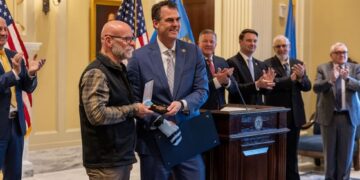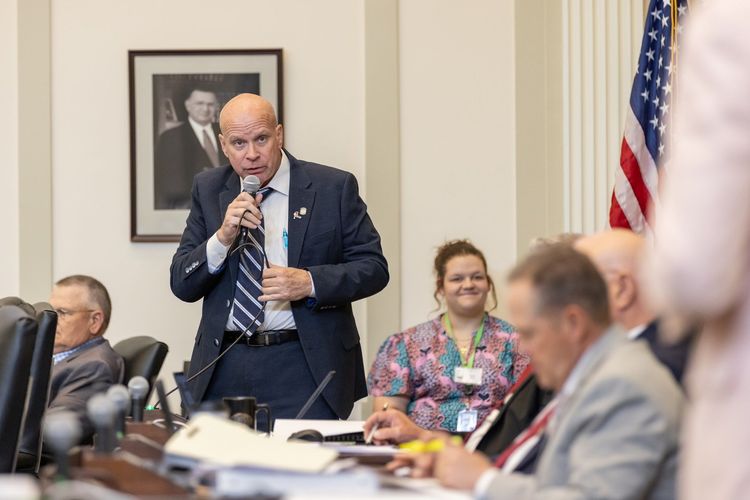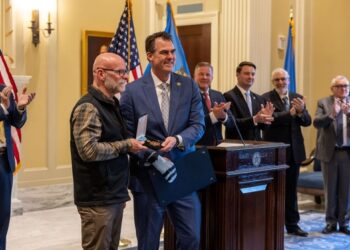This story is a part of a series on legislative caucuses and the role they play in the legislative process. To read the other stories in this series, click here and here.
OKLAHOMA CITY (OBV) – Most legislative caucuses work behind the scenes. The Freedom Caucus, however, is increasingly becoming a known political movement across the nation and in Oklahoma.
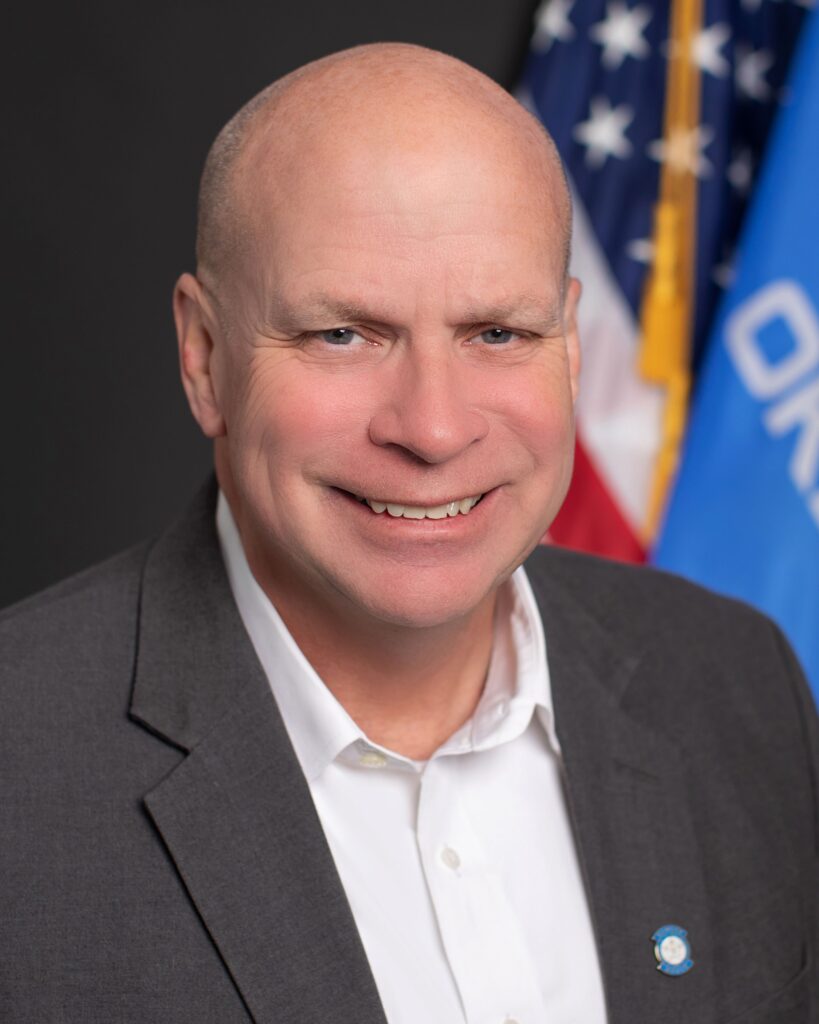
The Freedom Caucus espouses strictly conservative principles, championing free market capitalism and traditional family concepts, and opposing government regulations.
It has drawn criticism from Democrats and moderate Republicans alike. It has been accused of being a disruptive presence in both Congress and in state legislatures.
The Freedom Caucus is officially present in a dozen state legislatures across the nation. It is both public-facing and anonymous, with many of its members preferring anonymity. Oklahoma’s Freedom Caucus has only a few members who are publicly known in the state legislature. The other members choose to remain anonymous.
Rep. Jim Olsen, the Freedom Caucus’ vice chair for the Oklahoma House of Representatives, took time to speak one on one with Oklahoma Business Voice about how the Freedom Caucus feels about a wide range of issues, including tax cuts, tax incentives and credits, growing business, workforce development, career education, Oklahoma’s childcare crisis, women in the workforce, government jobs, and controversies surround the caucus.
Our interview with Olsen, R-Roland, was conducted shortly before the end of the recent legislative session. It is as follows:
What would you say are the pillars of the Freedom Caucus?
Olsen: The Constitution, limited government, personal responsibility, family responsibility, lower taxation, lower regulation, traditional marriage and family. And finally, leaning on the Bible and biblical principles as the bedrock of Western civilized nation.
When it comes to how the Freedom Caucus participates in the Oklahoma Legislature, what are your primary concerns and focuses?
Olsen: They are numerous, I guess probably a big one is to lower taxes and, related to that, smaller government. And this is true everywhere. Government just grows steadily year after year after year after year. I met a couple of lady legislators from Oregon, and I didn’t know it, but their population is very similar to Oklahoma, and their state budget is somewhere between double and triple what ours is. And so, you could wonder, “How do you get there so big?” And the answer is you get there a little bit at a time. Everybody has ideas, and almost all the ideas are really good ideas. But as we implement these, we get a bigger and bigger and bigger government. And so, the people of Oklahoma want some of their taxes back.
There are numerous states that are working toward no income. Some already have no income tax. Others are working toward no income tax. And we’re falling behind our surrounding states. The people of Oklahoma want some of their tax money back. So, that’s a big focus and related to that. And here’s the harder thing to actually have a vision to not only not grow government so much, but to actually make it smaller. And whenever you do that, you’re approaching on somebody’s territory, somebody’s good idea. But a lot of these good ideas can be implemented by individuals, families, churches, community organizations.
I’ll give an example. We had a bill earlier in this session; it would set the framework to eventually have the government have our state government support community gardens in the large cities. It’s a perfect example. That’s a good thing. Gardening is a good thing. Good for people. But do we really need the state involved in it? That’s something that a community organization could organize and get going and should get going.
So, I’m going to say lower taxes, smaller government, [and] lower regulation are some of our big focuses this year.
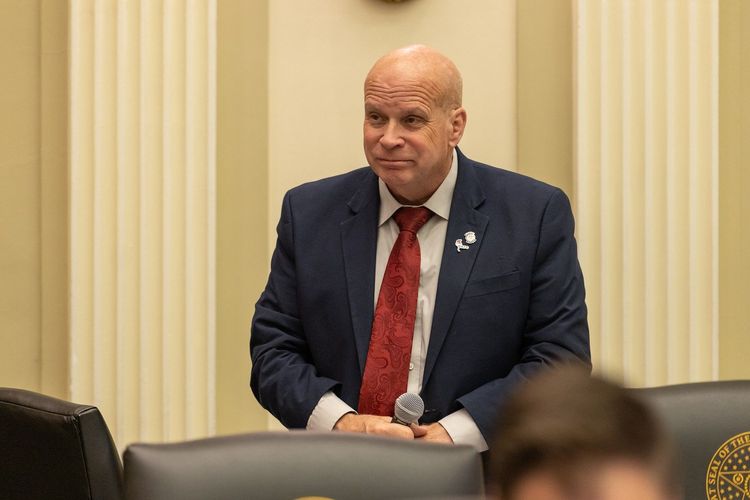
What do you say to folks who say that such tax incentives and tax credits also benefit tutoring and education for kids, especially kids in higher need areas that are underserved, where parents are struggling to make ends meet? And that such credits help grow Oklahoma by attracting businesses? What about those types of incentives? Is that something that you could be on board with?
Olsen: Maybe. Possibly. We’ve got to be careful of tax credits. Education tax credits are something that I have supported in the past. So that’s the only reason why I don’t give a flat no to that. Why I say, “Well, maybe.” You’ve probably given the example of one of the better tax credits.
But tax credits in general we have to be careful of because what it degenerates to is that somebody gets a special favor for their industry, for their business because they know several people here at the Capitol. [When it comes to] businesses, I want low regulation, low taxes, but I don’t want to give them any special favors. I don’t want to pick winners and losers. But education tax credits, that could potentially be a good thing.
But my mind goes back to when we talked about basic principles. We mentioned family responsibility. Our whole culture has so greatly diminished the family, and the family is so critically important. The feminist movement has told women, “Oh, you don’t need a man.” And that’s not true. Men need women, women need men. We need families together. And if those things were more intact, then we would have less need for the kind of programs that you mentioned. Though, again, that would be something I could potentially consider.
How many members of the Freedom Caucus are in the Oklahoma Legislature? I know there’s you and Sen. Shane Jett, Sen. Dana Prieto and Sen. Dusty Deevers. Is it just the four of you?
Olsen: That I can’t answer for you. The ones you mentioned are the public members. We have numerous members that do choose to remain private. And the reason is that as we look back in other states, I think we’re the 12th state to form a state Freedom Caucus. And in some of the other states, what they’ve experienced is retaliation for their positions and their strong voice.
Any member that comes in, they have the choice whether they prefer to remain a confidential member or a public member. I can tell you there are numerous private members, but I wouldn’t be able to give you a number.
What do you think the retaliation would be against? And of what nature do you think the retaliation would be? Would it be a violent form of retaliation?
Olsen: No, not violence. But there are there are some Republican caucuses in statehouses around the country where if you don’t agree with their positions and if you move to the right of them—if you don’t support their middle of the road or moderate positions—they will retaliate. Some members around the country have had their offices moved to something much more disadvantageous. Some even lost their offices. There was one fella, he was put out in the parking lot. So, he invited the media to come see this office in the parking lot. Now, it usually doesn’t go quite that far.
Then there’s the matter of having bills not heard. That’s a very common retaliation. Sometimes that’s harder to spot, because nobody around here gets everything they want, even the pro tem of the Senate or the speaker of the House. Nobody gets everything that they want. Everybody has bills that are not heard.
Having said that, it can fall heavier, sometimes, on the more conservative members—speaking broadly and around the country.
The Freedom Caucus is a national movement. How does the Oklahoma Freedom Caucus’ purposes differ from the national Freedom Caucus? Or are they in line?
Olsen: They’re basically in line. Obviously, you have individuals which may shade more heavily toward one thing or another, but, yeah, by and large, we’re very much in line.
Does the Oklahoma Freedom Caucus have meetings in which both public and nonpublic members gather and have discussions?
Olsen: We have discussions and issues are raised. “Hey, do we want to take a stand on this particular issue?” Sometimes we’ll get a unanimous, “Yeah. Let’s go.” And then some sometimes it will be, “Well, wait a minute. I don’t know.” So yeah, we discuss issues and we come to a consensus on what we want to move forward on together as a group.
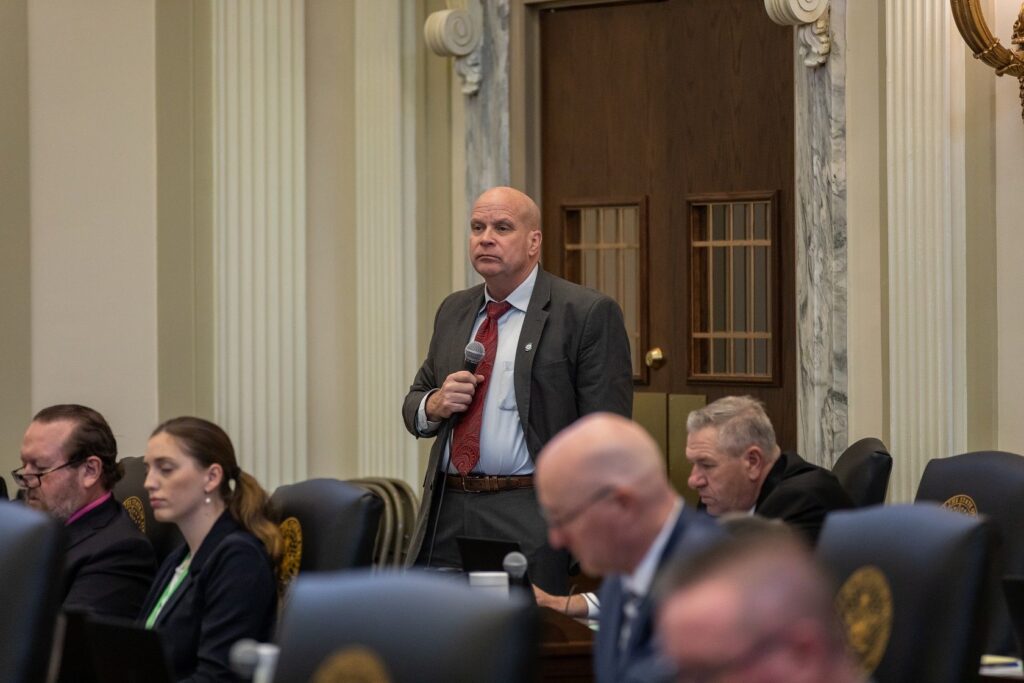
How does the Oklahoma Freedom Caucus decide which policies and legislation to support here in Oklahoma? And does the National Freedom Caucus have any influence on those decisions?
Olsen: That would depend on the principles involved. With some things clearly unconstitutional, we’ll probably stand against it. If it involves a tax increase, we’ll almost certainly stand against that. If it grows government, we’ll probably be against it. If it makes government smaller, we’ll probably be for it.
Now, you mentioned our structure. I am the vice chair on the House side. And then, Sen. Deevers is on the Senate side. Sen. Shane Jett is the overall chairman. We do have a state director, and that’s former Senator Nathan Dahm. We get together and talk about issues and directions we might want to go.
The national [Freedom Caucus] certainly does have an overall influence. Those of us that are in leadership would not be in leadership if the national group didn’t feel that we were suitable for it. So, in that sense, as a founding, they had a very strong influence.
Day to day, it’s less, but I’m sure they’re watching, seeing how we’re following the principles and carrying them out, and hopefully doing them pretty closely to what they would hope that we would do.
Is there any guidance or directive from the National Freedom Caucus or from the state director saying, “For this legislative session, these are the issues we care about. This is what we want to do”?
Olsen: Oh, sure. Yes. And again, hopefully getting on a long-term path to zero income taxes would be great. So that’s been a big focus. But sure. Yes. That comes from our national director. But really, if Freedom Caucus didn’t exist, Sen. Jett, Sen. Deevers and myself, we would be pushing for these same things anyway.
What we do get from our state director and our national is a more detailed analysis of the bills. We will vote on up to 800 or 900 bills per year. And some of them are one or two pagers—not that hard—and then some of them are 20 or 30 or 40 pages of legalese. It’s challenging to keep up with.
So, what we get from them is a more detailed analysis of the bills. I can pull out the bill number and they might say, “We’re neutral on that,” or they might say, “Oh, look at page three, line 12, and look what it does here.” That information is very valuable to us—the detailed analysis of bills.
What are the Freedom Caucus’ views on growing business? And what does the caucus believe are the best ways to support and grow business in Oklahoma?
Olsen: Great question. We believe in the free market. The free market has brought more prosperity to the world, by far, than any other economic system. Look at other systems. Under communism, Soviet Russia, they had some production. They produced things. Their people mostly didn’t starve. So, every economic system produces something. But free market capitalism produces far better and far more efficiently than all the rest.
Tied into that, we believe the duty of government, for the most part, is to just stay out of the way. You got a business, you’re going, “Here, let me get out of your way.” As long as you’re not committing fraud or committing some kind of crime, we want you to do your best, have lots of sales, have lots of profits, produce something good for your customers.
In line with that, we’re in favor of lower taxation on businesses, lower regulation at times, especially environmental. I’ll give you a clear-cut example: Your property is next to mine. My elevation is 15 feet higher than yours. We got a stream through it. It’s not right for me to put toxic chemicals in my stream and then it goes down on your land. That’s an example where some regulation is proper. But, for the most part, lower taxes, lower regulation. We are not in favor of picking winners and losers.
The big deal [the State of Oklahoma] was trying with Panasonic and Canoo a couple of years ago was $700 million in tax credits. That was well-intentioned. And that looked to me, initially, like, “Oh boy, that could really [be something]. But as I looked closer—and others with greater expertise than me, like Tom Gann, pointed out two or three years ago—Canoo’s not even a viable company. They’re just about to go under, and this was an integral part of it.
When you compare states that do a lot of incentives, tax credits, give money for the people to come in, the ones that do a lot don’t do better economically than the ones that say, “No, I’m not giving you anything special. Now, I’m giving you a free market and freedom to come here—and we hope you do—but we’re not going to do anything special for you.” Those states do just as well as the ones that say, “Oh, here, please come here. Let me give you more money.” That’s not free market capitalism. So, we do not support that.
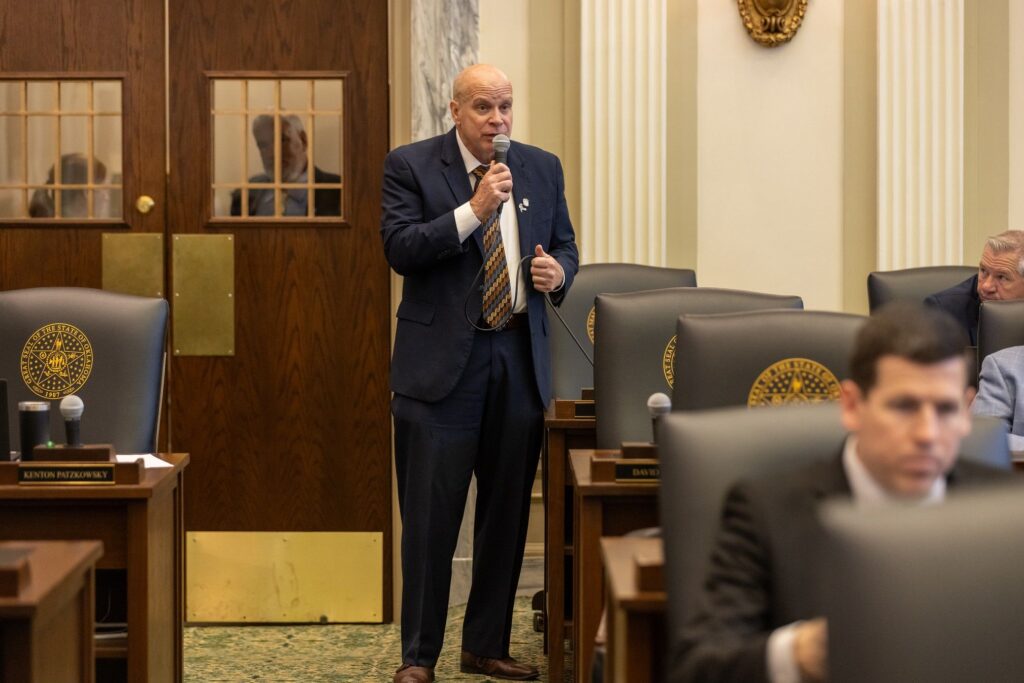
Such incentives are considered to be enticements to get big companies like Tesla and Panasonic to come to Oklahoma, which would lead to workforce growth and greater revenue for the state. If such tax incentives are not offered, what is there to entice major companies to invest in Oklahoma?
Olsen: Free market, low regulation, low taxes. In our case, for the most part, we have people with a tremendous work ethic. Those are the enticements.
Should there be any regulation on companies as far as practices and standards?
Olsen: For the most part, no. But going back to my earlier example, environmental regulations, to the extent that what we do affects our neighbors, some of that regulation is fine. Fraud is already illegal. We don’t want anybody committing fraud on anybody—that would be terrible. Just treating people decently and legally. Beyond that, for the most part, the answer is going to be no, in my judgment, just based on a free market.
If I have a business and I’m doing something that people don’t like, well, they’ll give their business to my competitor. If I’m treating my employees not as well as my competitors, they’re gonna say, “Hey, I’m gonna leave Olsen. I’m going to go over with that other company.” Or if the other company is mistreating them, maybe they’ll say, “Hey, Olsen treats those people really good. I’m going with him.”
The free market will take care of so many issues; far better than a detailed regulation of the government.
Senate Bill 662 establishes program lanes that will help guide the Oklahoma Workforce Commission. Senate Bill 663 moves the revolving fund that was previously set up for workforce development and housed at the Oklahoma Department of Commerce to the Workforce Commission. Freedom Caucus members opposed those bills. Senator Jett said that funding leads to more jobs in the public sector, which he said extracts from the private sector. What did you think was detrimental about those bills? And how do jobs in the public sector extract from jobs in the private sector? Also, isn’t creating jobs—including public sector jobs—a good thing?
Olsen: Creating more government jobs, for the most part, is not a good thing.
Going back to the earlier example, the Soviet Union, they had a highly managed economy. They produced some production, if you will. Pardon the redundancy. But what the Soviet Union would do, they would get their economic brains together and they would come up with five-year plans. And, yeah, they would put together some plans and they got some production.
But compared to our system—which is not entirely capitalist, not as free market as it should be, but comparatively—the American system was far more along the lines of a free market. We produce at least triple what they did for the common man, for the common families.
If we’re digging in here—and it reminds me of those Soviet commissars, the Soviet economic experts getting together, “And here’s our five-year plan. We’re going to do it.”—can you produce something? Absolutely. You can. Can you produce as much as the free market? No. You will fail every time. The market will invisibly direct resources to their most profitable use for everybody—for customers, for owners, for workers, for everybody.
And it just works better that way. People figure it out. If I own a business and I’m making X number of dollars, and then I find out about this other business—”I can use my present equipment and I think I’m going to do that.”—that’s the more efficient one. That’s what the market does. Planned government economies don’t do near as well.
What do you say to folks who contend that government entities, such as the Workforce Commission, can help facilitate job creation not only within state government but also within companies by advocating for career-readiness education and work-based education, such as apprenticeships and internships? That such entities can help lead to future workforce growth?
Olsen: Again, compare government production of something with private free market capitalism. The private free market capitalism does it better every time.
The education [aspect]? Well, I’ll give you an example of how the free market can do it. Say, you’ve got a man who’s an expert welder. He knows it very well. And he’s also a very good teacher. He may figure out, “Well, we need a thousand welders in Oklahoma. I could start a welding school [and] have the companies pay me for it. He does that as long as it’s profitable. When that need dries up, he’s going to go do something else. When it’s a government entity, they will keep it going forever.
These [government entities], yes, they can facilitate some things, but not nearly as efficiently as a free market.
Parents across Oklahoma have had a hard time finding childcare options, including affordable childcare. Many parents, especially mothers, have had to leave their jobs because of unavailable and unaffordable childcare. Around 55 percent of Oklahoma is considered a childcare desert. Freedom Caucus members didn’t support the childcare tax credit. Why not support that bill if it facilitates more childcare and keeps parents from leaving the workforce?
Olsen: Whether—and this is especially true in families with children—whether the mother goes out to work, that’s entirely and probably the decision of that family, that husband, that wife, whether she should go out to work. Actually, I would argue that many times that’s not a good thing, because the daycare center, even if it’s a good one, cannot raise the children as well as mama can.
And now again, that’s a private family decision, but we should not jump into it as government and essentially give an incentive for the woman to leave her home and leave her children and go out to work somewhere. That’s just not a good thing that we as the government should incentivize that kind of thing.
That’s a decision every family makes. But what I’m saying, we as the government entity, we should not encourage the woman and incentivize the woman to leave the home and work in public. That I think is bad public policy. Now the individual families, they can decide either way. That’s their decision, not the government’s. That’s not my decision. We should not incentivize for them to do that.
Family and home are just so critical. We can—with good intentions—be a part of the forces that dismantle the family. And that wouldn’t be a good thing.
But a lot of women have career aspirations.
Olsen: Oh, sure. Every family makes that decision for themselves.
Regarding, Senate Bill 586, which is the Quality Jobs Program Act, and House Bill 1562, which creates business courts, you and fellow Freedom Caucus members opposed those bills. It turns out a lot of Democrats did as well. What’s your opinion on the Freedom Caucus’ votes in the legislature sometimes aligning with Democrats’ votes?
Olsen: Overall and in general, Republicans vote this way, Democrats vote this way. There is a large overlap. If you actually look at all the bills we vote on, I vote yes on more than half of the bills. And most of the Democrats vote yes on more than half of the bills.
So, a lot of them we pretty much agree with, almost everyone votes for. There is that selection of bills that most of your Republicans voted for and some of your Democrats did, and some of the Democrats over here agreed with some of the Republicans over on this end. In my mind, that doesn’t bother me. I’m happy to vote for what’s right according to basic principles. And if the Democrats join me, or if I join the Democrats on that particular bill, that’s fine.
I’m judging by principle, not party. Although I do in general, I appreciate Republican principles, and that’s basically where I am. However, I’m not going to be hamstrung, especially when the Republican Party is weak on something. I’ll be strong on it if it’s a basic principle. And if the Democrats happen to agree, then, I’ll take a friend wherever they come from.
Would you consider yourself a Freedom Caucus member first, traditional Republican, or a new kind of Republican?
Olsen: So, how would you define traditional Republican?
True, there are different eras of Republicans.
Olsen: You have whom some call the country club Republicans that are more moderate in the middle. The Freedom Caucus, we’re stronger on principle. I’m going to say we align very closely with the earlier—and I’m talking 80-100 years ago—principles of the Republican Party.
The Republican Party….it’s interesting. If you look at the actual statements of belief—the platforms of the National Party and of the various state parties—they tend to be very conservative. They’re mostly very well written. Now, in actual practice, when they get to the state house here, most of them are not as faithful to those principles. So, I’m going to say we are very close to the platform of the Oklahoma Republican Party and the national Republican Party, and we would certainly line up with, if you want to compare on a national level, with the more conservative members of the Republican Party.
What are some misconceptions about the Freedom Caucus?
Olsen: There is the misconception out there that we just want to throw bombs and cause trouble. Now, that’s not true. I will say, around the country, those on the sides of the Republican leadership that these people have faced, and some Freedom Caucus members, I’m sure there are some that have made mistakes in approach.
But I can say for myself and how I conduct myself in this role and as a legislator, I do my best to follow what the book says: Follow peace with all men. As much as lieth in you, live peaceably with all men. So, I’m not looking for a fight. I’m looking to get along with everybody that I can.
At the same time, I do intend to stand for principle. And hopefully that won’t make me an enemy. But if it makes me an enemy, I’m going to be faithful to the principle anyway.


